Self belief and pure expression
Andrew Huang finds freedom through his creative practice
Andrew Huang has never been one to stay within the confines of a creative box. A strong proponent of musical experimentation and collector of unconventional samples, the Toronto-based musician has made a name for himself as a prolific songwriter. With songs that constantly cross the boundaries of genre, his music sparks intrigue and excitement for his audience. His YouTube channel has garnered him a loyal following of sound enthusiasts, and also creates an environment for musicians across the world where they can be both educated and inspired by his content.
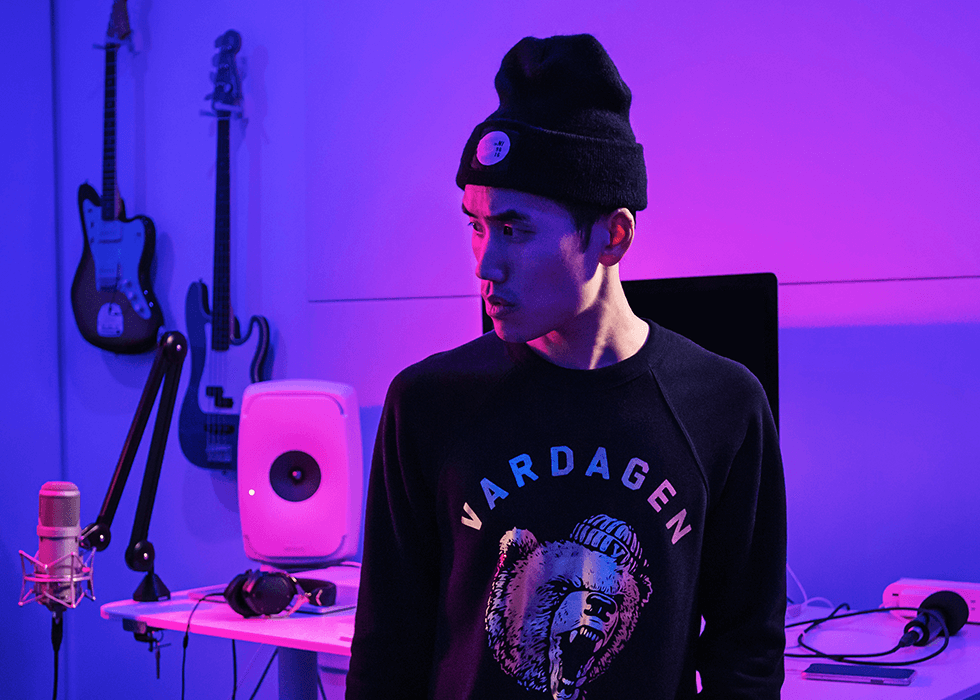
Huang has been no stranger to the discussion of gender identity, either. On his social media platforms, we often see him openly celebrating his non-binary gender identity, just as freely as he is able to experiment and express himself musically by blending a myriad of musical influences. The fluidity of his self and his music tells a story of self-discovery and is one that is constantly evolving and changing.In many ways, Andrew Huang’s attitude to gender identity and self-expression has been mirrored in his approach to his creative work and day-to-day life. “My previously more rigidly gendered identity was just one of many things that has dissolved as I've grown,” Huang recalls. “When I was a bit younger, I stopped concerning myself with the boundaries between musical genres and started exploring a lot more freely in my creative practice. In a lot of other areas too – social life, sleep schedule, career, whatever – over time, I've found that things that worked for me are often not ‘the way things are done’.
"I think in general it has just been more about an approach to life where I listen to my inner self more than to any outside voices."
With gender expression and sexual orientation, there’s no one size fits all, and it can be difficult to try and condense one’s being into one definable thing. “Somewhere along the way, I ended up realizing that in terms of gender expression or sexual orientation, I didn't need to identify in any particular way. I gave myself a lot of anguish when I was younger, thinking that the way I felt meant that something was wrong with me, or that if I just found the box that I fit into, I would suddenly have everything figured out. I think the labels are great when they work – I know so many people who just felt like they were finally themselves when they came out. For me, that moment was the epiphany that I didn't need to find my identity, I could accept and embrace all my ambiguities and just live it.”
Huang’s self-expression celebrates the nuances of his identity and is unafraid of conveying that in his work. “I draw very few lines between anything in my life, so who I am and what's on my mind all pours into my art in some way. At the same time, the process of creating leads to all kinds of discoveries that inform what I think about and who I'm becoming.”
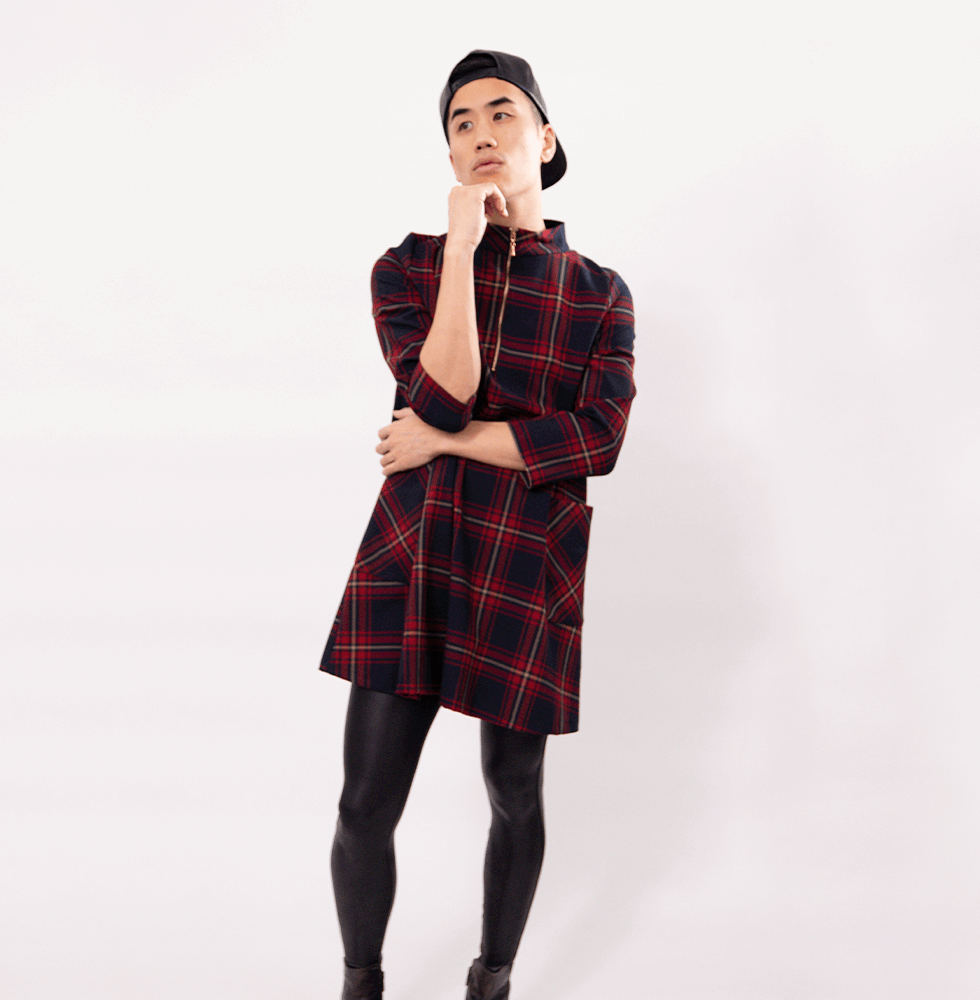
MAKING MUSIC THROUGH UNORTHODOX MEANS
The audience for Andrew Huang’s unique approach to music making and unapologetic eccentricities has grown and morphed over the years. “Early on, I think people started following me because what I was doing was weird or entertaining. Like, who makes a beat using a thousand pairs of pants, you know?” Huang explains. “In the last few years, the balance has shifted to be more about sharing my knowledge and perspectives. I'm always learning, and it has been cool to bring people along with me in that. I like getting the community involved, with things like contests or featuring people's work on my channels. I also think it's amazing that I can send out a tweet and in a couple of hours have a hundred answers to a question, or submissions of interesting sounds to use.”
Looking at the music industry today, there are many avenues of entry. Social media provides a platform for independent voices to get their music out there and heard, but Huang’s beginnings were in a very different landscape. “I sort of snuck into the industry through a side door,” he says. “I wasn't getting very far with gigging, networking events, or sending out press kits. When I started following my instincts about sharing my work online – this was in 2004, before most of social media as we know it – suddenly, I found an audience. It was small at first, but dedicated, and it grew.
"Eventually, if your work is connecting with enough people, the industry comes to you. People reach out about work and collaboration and events.”
Being an early adopter of social media as a tool for his creative progress, Huang built his name as a prolific songwriter and content creator, as well as garnering a loyal following that supported his creativity. “I sustained myself entirely with commission work in the early years, then as my audience grew, I was able to support myself more with music sales, which overlapped a bit into my YouTube days where ad revenue and sponsorships came into the picture – with pretty good timing too, since right around then streaming came along and destroyed download revenue and what was left of CD sales.”
It’s no secret that finding your place within such a saturated industry can prove difficult, and often disheartening, but self-belief and an enthusiastic and responsive community and audience can be an invigorating push. “I think a lot of what I do now came out of trusting my gut, as well as having this new kind of connection to an audience,” Huang recalls. “You could comment back and forth, they would react immediately to things you posted, and you could even collaborate in whole new ways. An interesting example of how this shaped my approach is with sampling.”
Huang’s love of weird and wonderful sound sampling has provided formative experiences in his trajectory as a musician and carving out his own space among his peers. “From pretty early on, I was interested in incorporating unorthodox sounds in my work – using water bottles or paper as percussion, processing field recordings with weird freeware applications. Nobody would know or care about what those sounds were, but once I started doing video, they became the most compelling thing. In a sea of traditional instruments, they really stood out.”
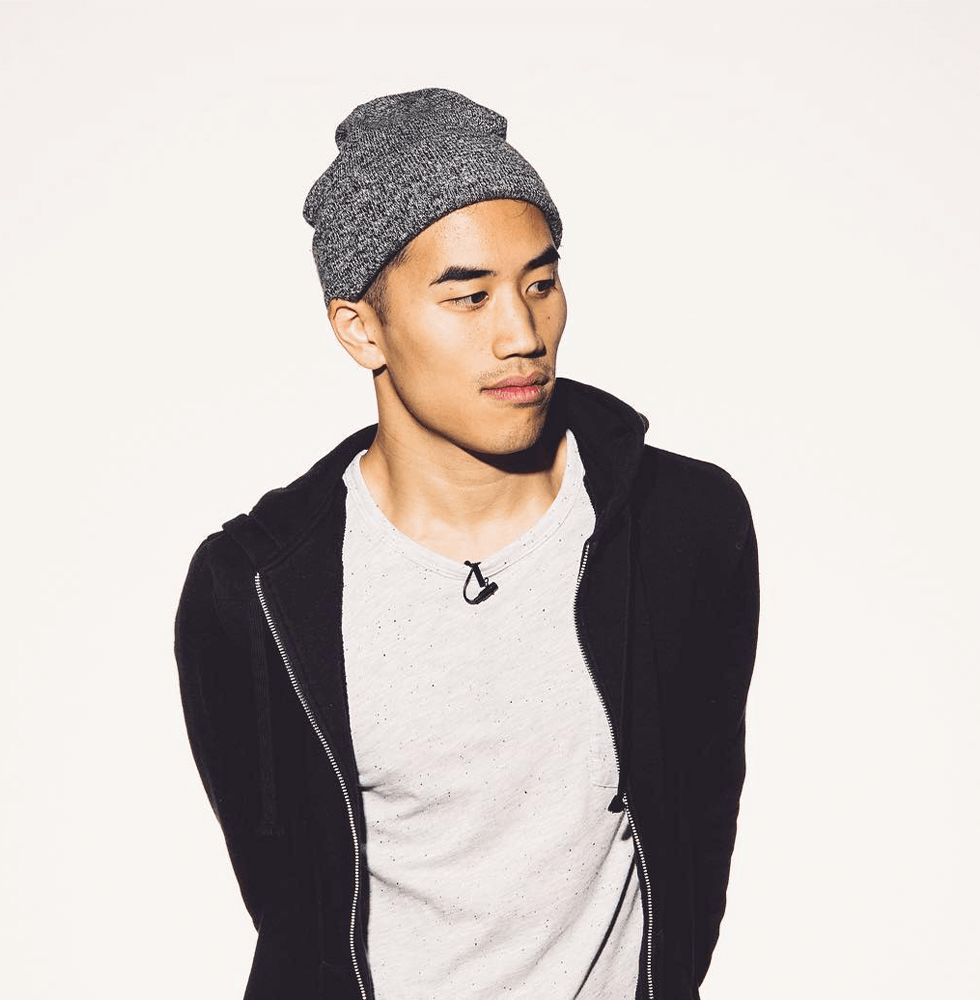
The eccentric spark in Huang’s work drew in a unique audience of dedicated lovers of sound and unconventional music creation, as well as validating his creativity and spurring him on even further.
“That gave me a fun push to see how far I could take things, to the point where I was creating entire pieces using only the sounds I got from balloons, pants, dogs, or helicopters. It was this feedback loop where my love of sampling was reinforced, and my skills kept developing and these videos would occasionally go viral and bring in new waves of people who wanted to experience more of this kind of thing or even try making it themselves.”
In recent times, Huang has focused his efforts on endeavours that help to give back to the creative community and provide resources to help guide newly starting musicians.
The ideas don’t stop there, with Huang also venturing into the app space for an innovative take on mobile based sampling. “I got a small team together to develop an app idea I had, which we released on iOS at the end of 2020 (trying to see if we can bring it to Android as well). It's called Flip and it's essentially a mobile DAW for sample-based music production, for $10US. I'm super stoked on it, we came up with a really fun and fast workflow with it and I'm using it all the time.”
“I've been putting my energy into things that can go deeper and provide more value than a fun YouTube video,” he says. “I put together an online music course (monthly.com/andrew) that gives students a detailed walk through my entire music creation process, from ideation through to mixing and mastering, with some music theory and synthesis fundamentals in there too.”
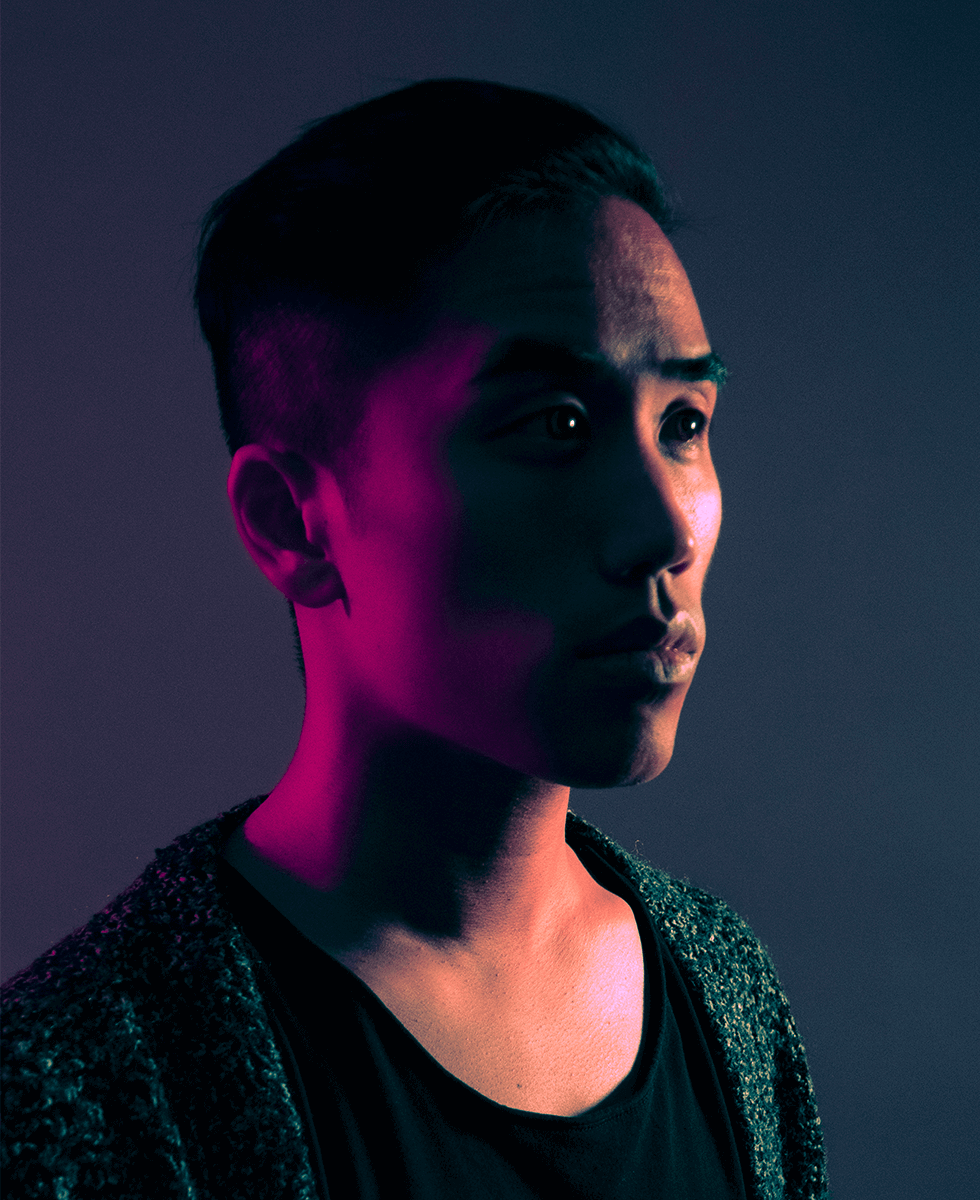
SELF EXPRESSION THROUGH SOCIAL MEDIA
Being unapologetically oneself on social media is something that can subject you to unwanted criticism. “It really brings out the extremes in people,” says Huang. “I've had overwhelmingly positive support from my community whenever gender nonconforming elements show up in my posts, but there are always folks who don't necessarily understand or are acting in bad faith who just want to put you down for being different. There's not a lot of middle ground. No one's like ‘Ah, cool. Nice day out, isn't it?’”
With a life and career so heavily embedded in the online space, Huang’s expression of his gender identity through social media has inevitably invited unsolicited scrutiny. Fortunately for Huang, the overwhelming majority of his audience celebrates him for his individuality, even when it’s not related to his music.
“Multiple people that I've collaborated with have told me that I have the best audience ever. It's amazing. Almost everyone is positive, supportive, open, curious, and friendly. These folks I'm working with are used to half of the comments under a YouTube video being snarky, ignorant, or trolling. So, whenever I go outside the box in any way, the response is an overwhelming "I love that you do you", and I feel super lucky to have that. There is a very tiny "shut up and stick to music" crowd, who, of course, only pipe up on posts if they disagree with me ideologically and have no problem when I make any other kind of non-music post.”
Huang’s authenticity and conviction in his beliefs is refreshing and empowering. Without feeling the need to restrict his opinions nor feel any pressure to present himself in a specific way when communicating with his audience, he opens the space for authentic and relevant conversation.
“I don't filter myself too much, in that there isn’t anything I'm afraid to say, but mostly when I post I guess I'm thinking about what's interesting or important or funny to me, or actually adding something unique to the conversation. And 95% of my best thoughts and ideas are music-related, so that ends up being most of the feed. Though, I do think gender will come up more often, as it has continually done over the last few years as I've become more confident and self-aware of where I stand with myself and these issues.”
It’s no easy fix trying to rectify long existing structures that have worked against the LGBTQ+ community and marginalised communities in general across the wider music industry. However, one of the most effective ways to start addressing the issue of inclusivity and representation in all forms of media, is by bringing those unheard voices and unseen faces to the forefront.
“Active representation matters,” Huang states. “The very reason why we need that is because representation doesn't just come about from lots of different types of people sharing a community – the tendency is for norms and defaults to perpetuate themselves, for those with opportunity and power to get more opportunity and power. And when that's unchecked, the marginalized get more marginalized.”
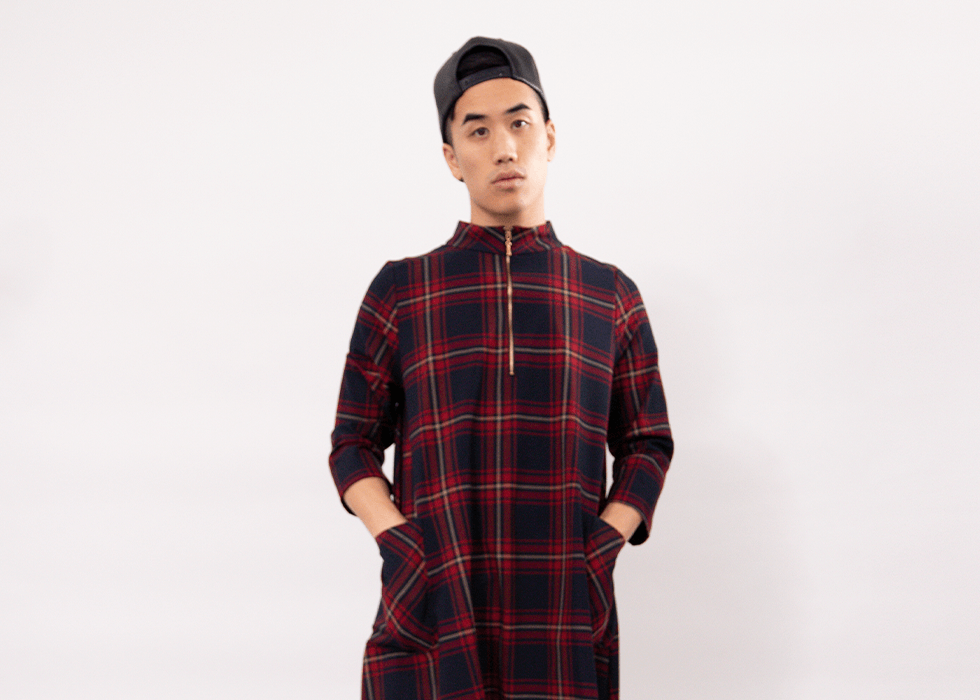
CREATING THE NEW NORMAL
Work needs to be done introspectively too – not only must there be more diversity among performers and creators who get a platform, but there must also be equal opportunities and access to industry positions behind the scenes. “Everyone needs to be looking at who's on their staff at all levels,” states Huang. “Having a breadth of perspectives is so beneficial for business and culture at large. Similarly, representation in content is important. We tell kids that they can be anything but that's definitely not what a lot of them see.”
With over 2 million YouTube subscribers, and an Instagram following of over 217,000, Andrew Huang is actively becoming one of the faces of representation for a new generation, and even providing a sense of validation for those who have been struggling to find themselves in popular culture and media for a long time. Through his platform and influence, Huang is able to advocate for LGBTQ+ voices and thinks about how we can adapt and change the current landscape for a more inclusive future.
“What I mostly think about is normalizing things and lifting others up.”
“My show ‘4 Producers 1 Sample’ is my most popular format and I love that it lets me shine a spotlight on all kinds of incredible artists. With that show, I'm trying to think about inclusivity on a lot of spectrums – gender, orientation, race, age, audience size – and I definitely have to acknowledge that it's a constant challenge. When content creation is fast-paced and you're dealing exclusively with people who have busy and unpredictable schedules, you can't represent everyone every time. I don't think anyone ever gets to stop striving for diversity and pat themselves on the back. You work on it and then you keep working on it.”
Striving towards better representation of different gender or ethnic backgrounds across media and within the music and creative industry. Removing the sense of otherness from marginalised identities in all areas of life is one of the strongest ways we can make representation feel as natural as possible. These people are not anomalies and exist within all of our communities. For Huang, this is crucial.
“As for normalising things, while I'll occasionally say something about being gender nonconforming, more often I'll just be in a video or a photo wearing a dress or nail polish and not bother addressing it at all."
This matter-of-fact acceptance of difference that will help to bring more equality to marginalised identities. “Just like, here you go, it's not a big deal,” he continues. “Just wearing what I happen to be wearing, not trying to get a reaction or start a discussion, and not engaging with any of the confusion and repulsion that inevitably shows up in the comments. I guess I'm hoping we eventually get to a place where it truly isn't a big deal, and I'm just living like we're already there.”
Words: Zainab Hassan
Join Novation in celebrating Pride Month and support the lives and wellbeing of the LGBTQ+ community!
Purchase one of our limited-edition Pride inspired T-shirts and all the proceeds will be donated to some incredible charities who are accelerating acceptance for LGBTQ+ people, specifically within the music and entertainment industry
